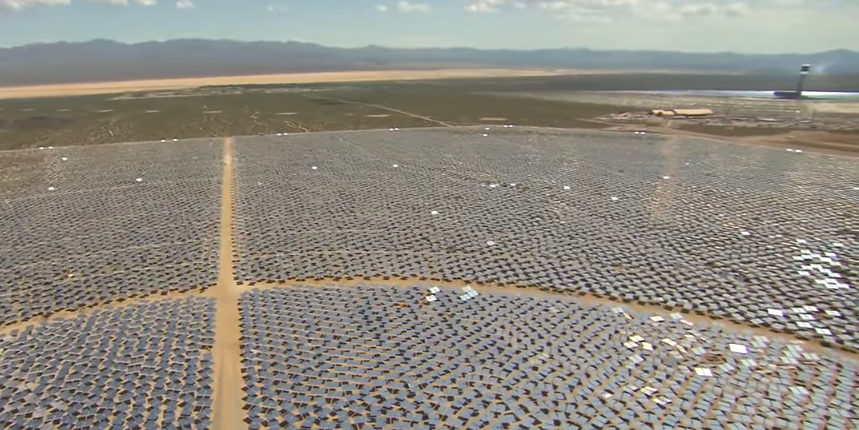“Clean energy” PACE loans putting borrowers at risk of losing their homes due to high fees and interest rates
05/02/2021 / By Arsenio Toledo

During the height of the Great Recession in 2009, then-Vice President Joe Biden touted an alternative financing program known as Property Assessed Clean Energy (PACE). The problem with this program was that it has made thousands of homeowners across the country pay so much more than what they initially agreed to.
PACE can provide homeowners with much-needed cash for upgrades to their property, provided that the money is spent towards improvements that make the home more energy-efficient or use renewable energy. (Related: UN secretary-general calls for world to end “deadly addiction” to coal, ignoring the role it plays in constructing renewable energy plants.)
For the residential PACE (R-PACE) program, homeowners can pay the costs as part of annual assessments added to their property tax bill. The loan, fees, interest and collection charges can be paid back over a period of time ranging from five to 20 years.
But Max Cook, President and CEO of the Missouri Bankers Association, condemned PACE as “the payday loan version of home improvement financing.” This is because the interest and fees that homeowners have to pay can substantially increase what people need to pay at the end of each year, leading to many losing their homes due to not having enough cash on hand.
Over 3,000 homeowners in Missouri affected by PACE financing
Over 3,000 homeowners in Missouri have taken advantage of the supposed benefits they can get from PACE financing and have signed up for the loans. This has led to disastrous consequences.
More than 100 homes with PACE loans in the metropolitan areas of St. Louis and Kansas City are at risk of being sold at public auctions because their owners have fallen at least two years behind on their payments. Of those 100 homes, at least 29 are scheduled to be sold at auction this year alone if the owners are unable to catch up on their payments.
Diana Thomas, 53, is one of them. She needed to install a new furnace and four small basement windows in her two-story home on the east side of Kansas City. But she did not have a lot of cash and she had bad credit. In 2016, a contractor informed her about PACE. It sounded enticing, as it required no money down, and all she had to do was pay extra on her annual property tax bill – which wouldn’t be due until the end of 2017.
When Thomas got her 2017 tax bill, she knew she was in trouble. With the loan payment, her property tax bill surged from $247 to $1,465.
“I was like, ‘Oh my God, what have I done?'” she said.
To pay off her $10,792 loan, including the fees, Thomas signed up for a 15-year payment plan at an annual percentage rate of 10 percent. Her total bill comes up to $18,200. She noted that this is nearly $2,000 more than the value of her home – $16,226 – when she took out the loan.
Since she got the PACE loan, Thomas has missed four years of tax payments. The court in Jackson County, where she lives, has ordered her to pay the past three years of taxes. If she can’t, her house will be up for public auction in August, with the county taking the proceeds to settle the debt and leaving her with nothing.
“Homeowners typically are not aware of the impact R-PACE loans have on property tax bills or escrow accounts,” wrote Cook in an opinion piece in the Missouri Times. “R-PACE lenders are not required to consider a homeowner’s ability to repay the loan or make a single large payment annually. If they cannot afford to pay the bill at the end of each year, homeowners can incur steep tax penalties and lose their homes.”
Cook claims the Missouri Bankers Association is lobbying to reform the state’s R-PACE program. Some lawmakers in the state legislature are already onboard, with the state House having passed a bill that requires Missouri’s finance division to examine R-PACE programs at least once every two years. The said bill is now being considered in the state Senate.
In Jackson County, where Thomas lives, the County Executive vetoed a proposal that would allow a second PACE program to be set up there. The executive said in a statement that he was troubled by the program’s impact on the community and decided it should not be expanded any further.
This is cold comfort for Thomas, who is still looking for help with her own situation. When she spoke to ProPublica regarding her experiences with PACE, she was looking for a lawyer to help her figure out how to keep her home.
“I can’t just let them have my house,” said Thomas. “They just can’t take my stuff from me like that.”
Learn more stories about Americans going into debt due to bad policies by reading the latest articles at DebtCollapse.news.
Sources include:
Tagged Under: Clean Energy, Collapse, debt, debt collapse, economic collapse, economics, economy, finance, green energy, Joe Biden, loans, Missouri, PACE, Property Assessed Clean Energy, risk, solar power
RECENT NEWS & ARTICLES
COPYRIGHT © 2017 SOLARPANELS.NEWS
All content posted on this site is protected under Free Speech. SolarPanels.news is not responsible for content written by contributing authors. The information on this site is provided for educational and entertainment purposes only. It is not intended as a substitute for professional advice of any kind. SolarPanels.news assumes no responsibility for the use or misuse of this material. All trademarks, registered trademarks and service marks mentioned on this site are the property of their respective owners.





















